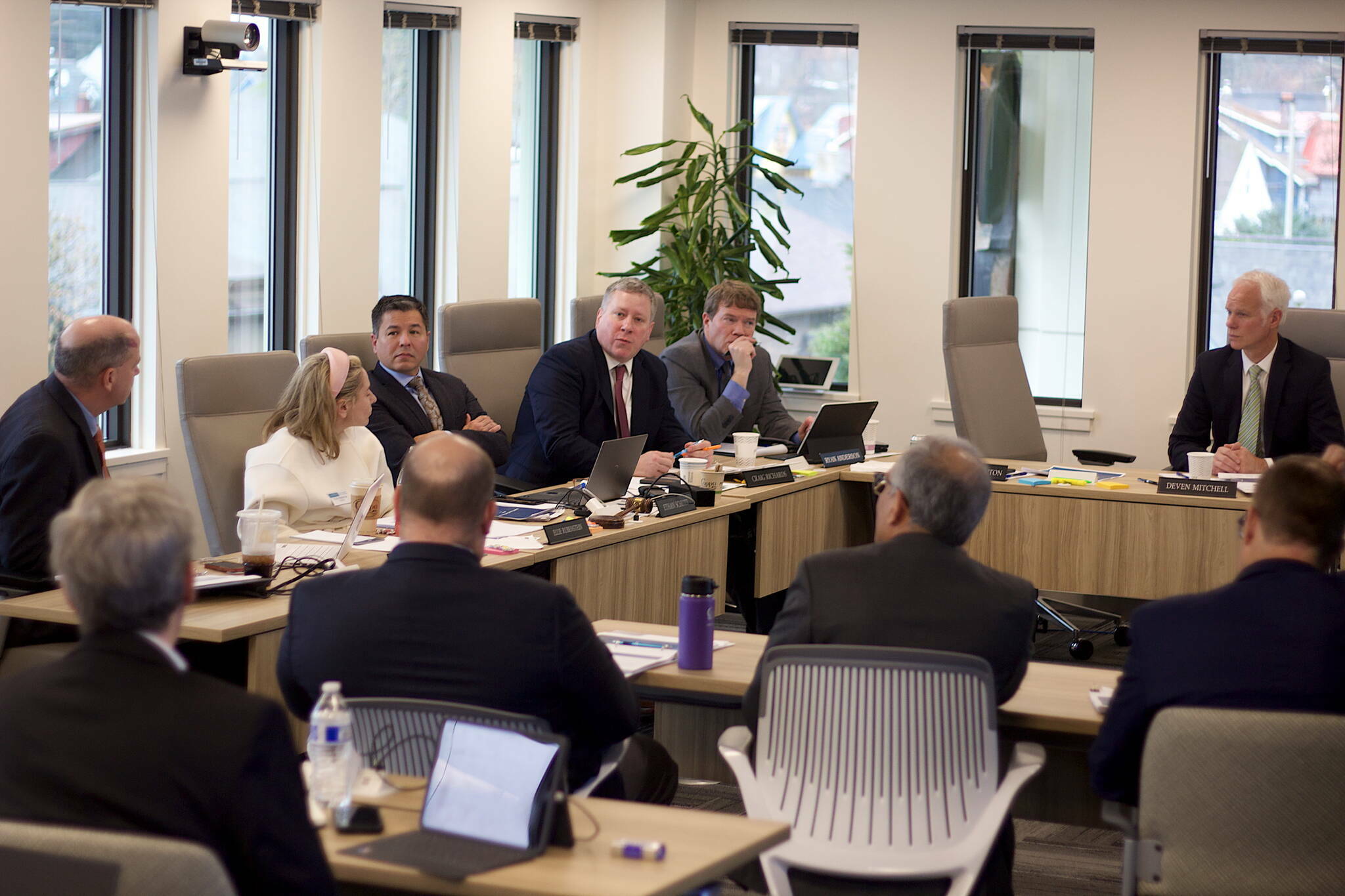The advice for Las Vegas gamblers is don’t bet more than you can afford to lose. It’s generally the same advice for investors: Don’t take more risk than you can afford, even when the riskier bets look like they could pay off the same as 21 at the blackjack table.
The six members of the Alaska Permanent Fund Corp. board of trustees are not gamblers, but they are getting a little too aggressive in accepting risk as they chase after higher investment returns.
Most every investment is a gamble — company stock can drop in price, bonds may be worth less if borrowers stop repaying their debts in full, real estate can fall in value, interest rates can move in an unexpected direction and start-ups can go belly up. But over the decades, the Permanent Fund has done an admirable job of balancing acceptable risk with healthy returns, growing to $78 billion as of Feb. 15.
However, the board of trustees now wants to stick out the fund’s neck a little more in hopes of earning a higher return. Granted, the fund shouldn’t mimic a turtle and pull in its head every time the financial markets look menacing, but neither should the fund take unnecessary chances.
The trustees last week adopted a four-year strategic plan which includes seeking legislative approval to borrow money in hopes of investing that money and earning more than the fund would pay in interest on the debt.
The trustees propose borrowing up to $4 billion.
Minus six zeros, it’s the same as an individual borrowing $4,000 and putting the money into the market, thinking they can earn 8% on their investment, pay 4% on the borrowed money, and pocket the 4% profit without putting any of their own money at too much risk.
That is, unless the borrowed money fails to earn a higher return than the interest payments, in which case the investor loses the difference.
It’s not a new strategy, a lot of investors use borrowed money rather than their own cash. But that does not make it appropriate for the Permanent Fund. Alaskans depend on the fund’s earnings to pay more than half of the state budget each year, which includes schools, roads, every other public service — and the Permanent Fund dividend.
If the fund fails to meet its growth targets, its transfers to the state general fund will suffer. That’s a risk too far.
The trustees described it this way in announcing their new strategic plan: “By borrowing capital, with the objective of generating returns that surpass the borrowing cost over time,” the corporation “could utilize leverage as a strategic investment decision.” The trustees added, “Leverage does magnify risks and must be tactically and strategically evaluated.”
“Magnify risks” is a polite way of saying this could be a loser.
The trustees say they want to grow the fund to $100 billion. No quibble with that. The bigger the fund, the more for public services. But the Permanent Fund Corp. already projects the fund will top $100 billion in 2033, producing $1 billion a year more for public services than it will spin off this year.
Betting on borrowed money to juice investment returns to reach 2033 faster may sound enticing. And it may be OK for investors who do not depend on their earnings to pay for schools, state troopers and an annual dividend to residents. But it’s more risk than the Alaska public should accept.
The Legislature should study the cards and tell the Permanent Fund trustees to fold this hand.
Larry Persily is the publisher of the Wrangell Sentinel.


